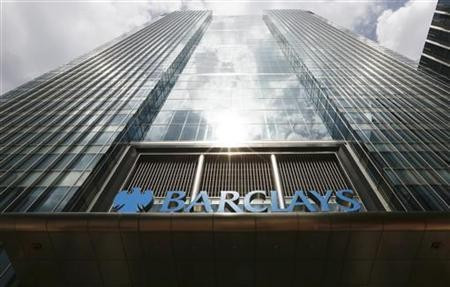Libor Fixing and Mis-Selling Derivatives: Guardian Care Homes Takes Barclays to Court [VIDEO]

Barclays is the first bank to be taken to court for £38m damages for fixing Libor and mis-selling derivatives to Guardian Care Homes (GCH), after Justice Julian Flaux ruled that the bank must go to court over the dispute, despite it trying to throw the case out of court.
The dispute is a landmark test case as it will later determine how courts will decide on how to settle interest rate swap agreement (IRSA) mis-selling, as well as claimants suing over banks manipulating rates.
After the High Court judge ruled that a claim brought against the bank by GCH must go to a full trial, Gary Hartland, CEO of GCH highlighted how the court case is not just about the mis-selling of derivatives but how the product selling dispute happened in tandem during the period in which Barclays were rigging Libor rates.
"This is a huge milestone with a trial now going forward to determine whether these financial products should be declared void. Mine is a small care home operator, and these products along with the conduct of Barclays throughout this process have had a hugely distressing impact on our staff and residents. We are delighted that the judge has accepted our pleadings that Barclays should face fraud allegations in relation to attempted Libor-rigging and the aggressive selling of hedging products," says Hartland in a statement.
"Barclays' attempt to have this claim thrown out has now been wholeheartedly rejected by the judge. Despite the fact that our claim has always had the Libor element, Barclays have to date refused to disclose information including the names of senior management involved in attempted rigging. Our claim is not just based on mis-selling but on the effect of senior management at Barclays instructing the aggressive selling of swaps while attempting to rig Libor," he adds.
The case centres around loan and finance deals between Barclays and GCH during 2007 and 2008. Attached to these were two multi-million pound IRSAs.
IRSAs are contracts between a bank and its customer where typically one side pays a floating, or variable, rate of interest and receives a fixed rate of interest payments in exchange.
They're used to hedge against extreme movements in market interest rates over a given period. Companies that have seen the value of these products move against them as rates fell during the recession, now owe banks crippling sums of money in interest payments each year.
GCH's claim is not just against the IRSAs, which means when interest rates are still low that they will have to make thousands of pounds in payments every year. GCH's claim also weaves in the fact that Barclays sold these products during the time Barclays' was found to have rigged benchmark interbank lending rates by US and UK authorities.
Barclays told IBTimes UK in a statement that "the Judge's decision means these issues will need to be determined at a full trial in due course. This business had a suite of advisors and a lot of financial experience and skill in-house. We understand that Graiseley (the owner of GCH) entered into their swaps with sufficient understanding to exercise their own judgment as to whether the products would meet its business objectives. They are a significant business which owes Barclays £70m. We do not believe the case has merit and will defend it."
© Copyright IBTimes 2025. All rights reserved.






















